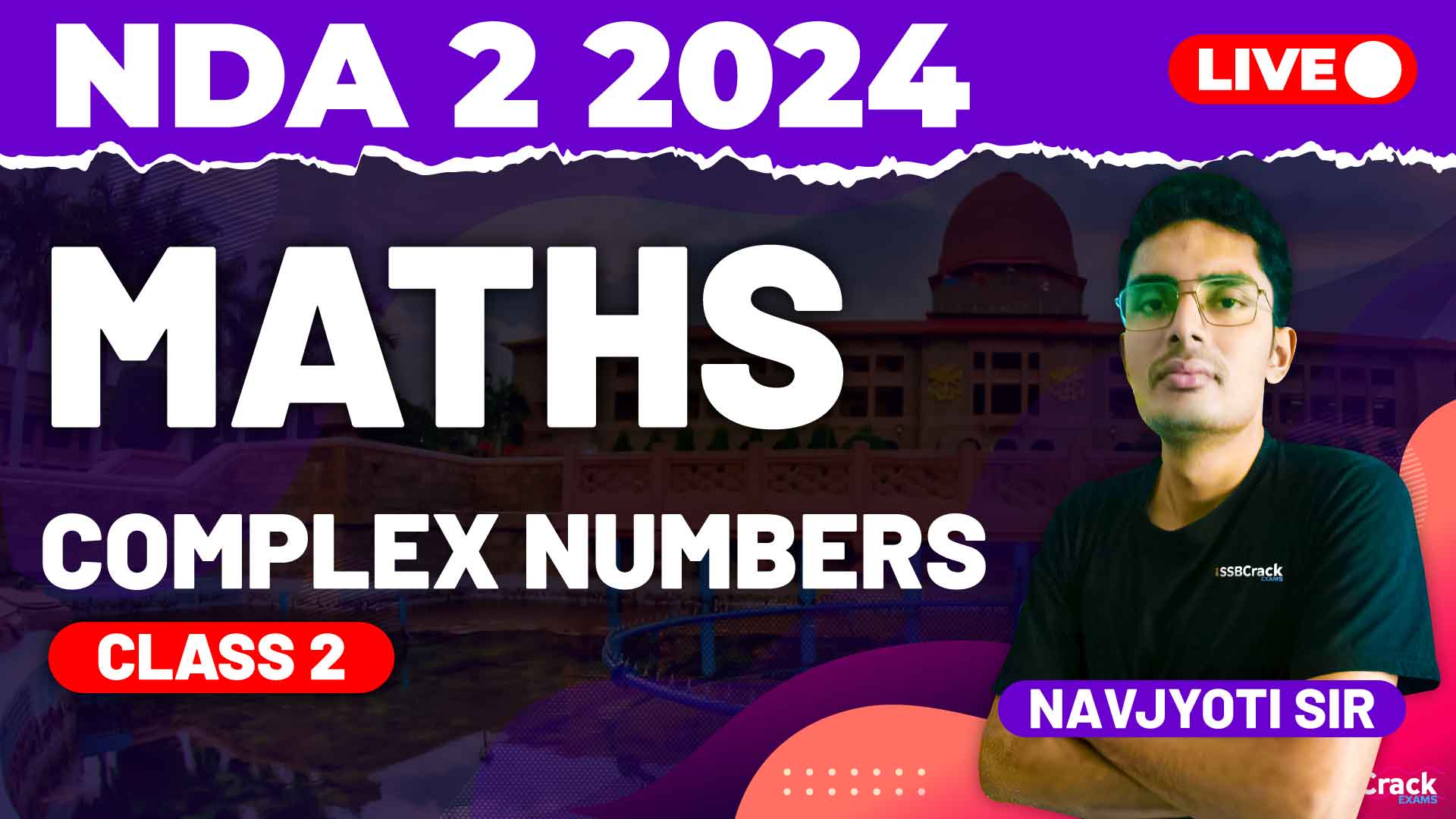The NDA 2 2024 exam syllabus includes a crucial topic in mathematics: complex numbers. In our second live class on complex numbers, we focused on practicing multiple-choice questions (MCQs) based on the subtopics discussed in the previous sessions. These subtopics included Imaginary and Complex Numbers, Operations on Complex Numbers, Powers of iota, Conjugate, Modulus, Argument, Square Root of a Complex Number using algebraic identities, Cube Roots of Unity, and De Moivre’s Theorem. This article will highlight the importance of these subtopics and how practicing MCQs can reinforce understanding and prepare students for the exam.
Importance of Practicing MCQs
Practicing MCQs is a critical step in mastering complex numbers for several reasons:
- Reinforcement of Concepts: Regular practice helps solidify the understanding of concepts and formulas.
- Application of Knowledge: MCQs often require applying multiple concepts, which aids in understanding their interconnections.
- Exam Preparation: Practicing under exam-like conditions helps improve speed and accuracy, essential for performing well in timed exams.
- Identification of Weak Areas: Regular practice can highlight areas where more study is needed, allowing targeted revision.
Review of Key Subtopics
Imaginary and Complex Numbers
Imaginary numbers are numbers that, when squared, yield a negative result. The unit imaginary number is denoted as (i), where (i^2 = -1). A complex number combines a real part and an imaginary part and is expressed as (a + bi). Understanding these basics is crucial for solving related problems.
Operations on Complex Numbers
Operations on complex numbers include addition, subtraction, multiplication, and division. These operations are fundamental and serve as building blocks for more complex problems.
- Addition and Subtraction: Combine the real parts and the imaginary parts separately.
- Multiplication: Use the distributive property and simplify using the definition of (i).
- Division: Multiply the numerator and denominator by the conjugate of the denominator to simplify.
Powers of iota
The powers of the imaginary unit (i) follow a cyclic pattern:
- (i^1 = i)
- (i^2 = -1)
- (i^3 = -i)
- (i^4 = 1)
This cycle repeats every four powers and helps in simplifying expressions involving powers of (i).
Conjugate of a Complex Number
The conjugate of a complex number (a + bi) is (a – bi). Conjugates are useful in various operations, such as simplifying the division of complex numbers and finding magnitudes.
Modulus and Argument of a Complex Number
The modulus of a complex number (a + bi) is its distance from the origin in the complex plane. The argument is the angle it makes with the positive real axis, usually measured in radians. These are key in representing complex numbers in polar form.
Square Root of a Complex Number using Algebraic Identities
Finding the square root of a complex number involves expressing it in the form (x + yi) and solving a system of equations derived from equating it to the original complex number. This method is essential for solving quadratic equations with complex solutions.
Cube Roots of Unity
The cube roots of unity are the three complex numbers that satisfy the equation (z^3 = 1). These roots include one real root and two complex roots, symmetrically located in the complex plane.
Conclusion
The second class on complex numbers for the NDA 2 2024 exam was dedicated to practicing MCQs based on the subtopics discussed so far. This practice is essential for reinforcing understanding, improving problem-solving skills, and preparing for the exam. By regularly practicing MCQs, students can enhance their speed, accuracy, and confidence, ultimately leading to better performance in the exam.








